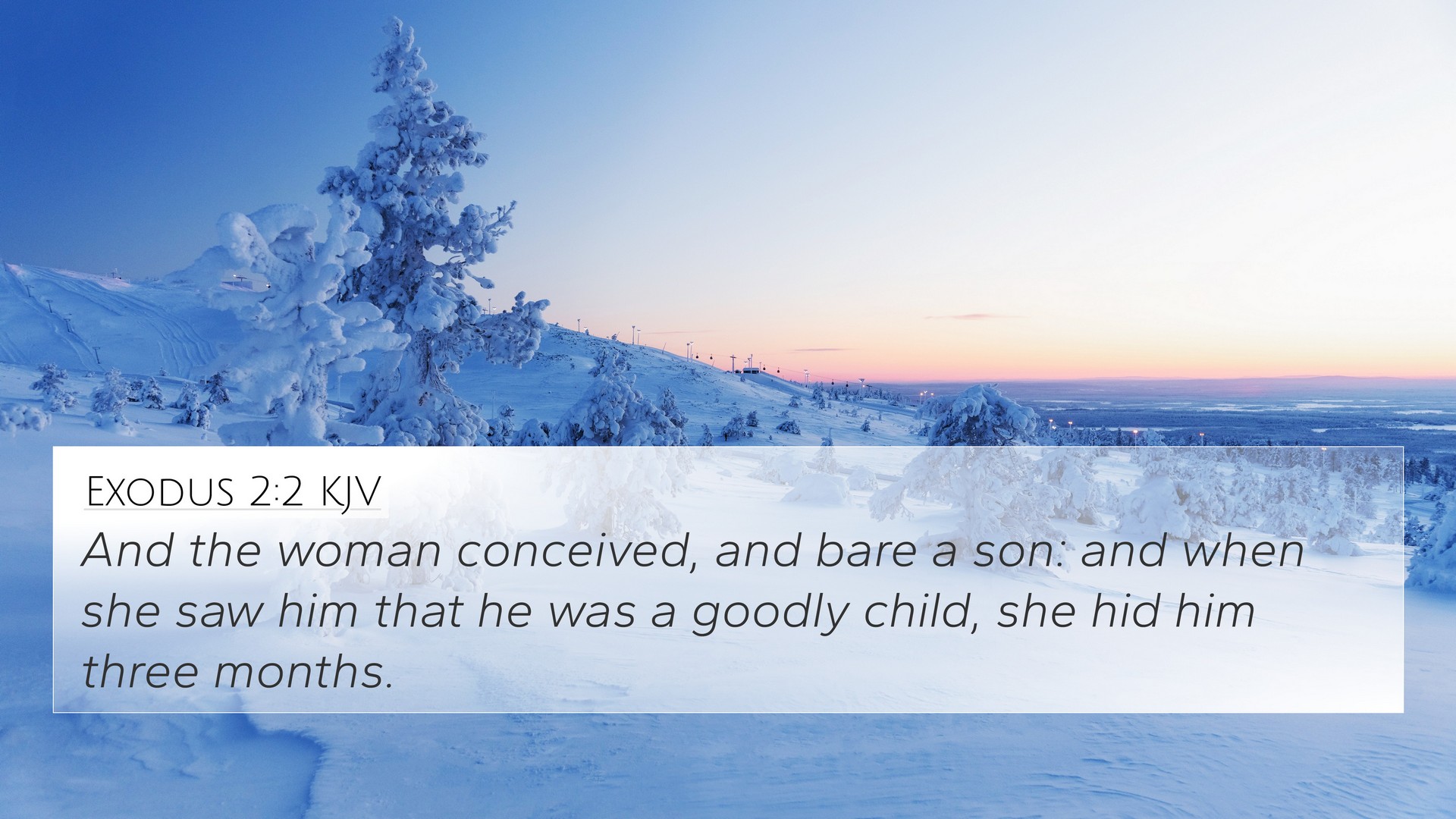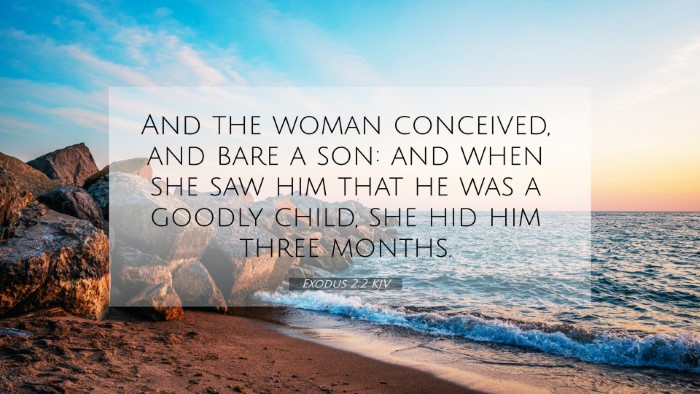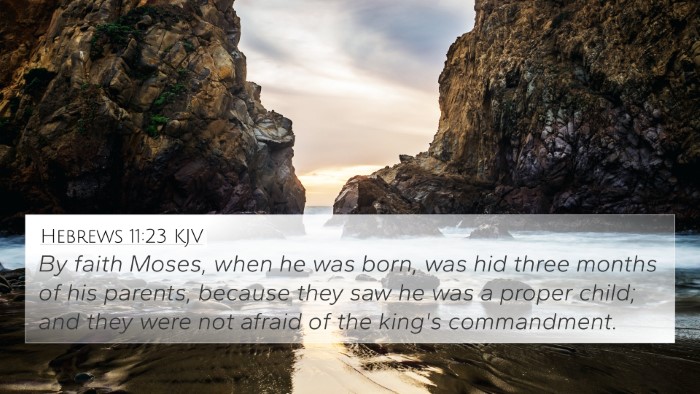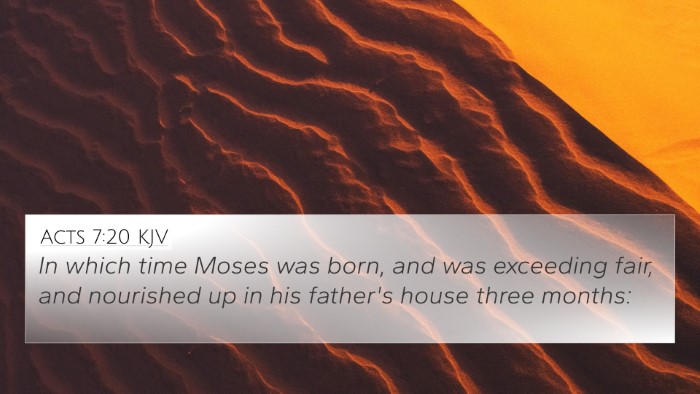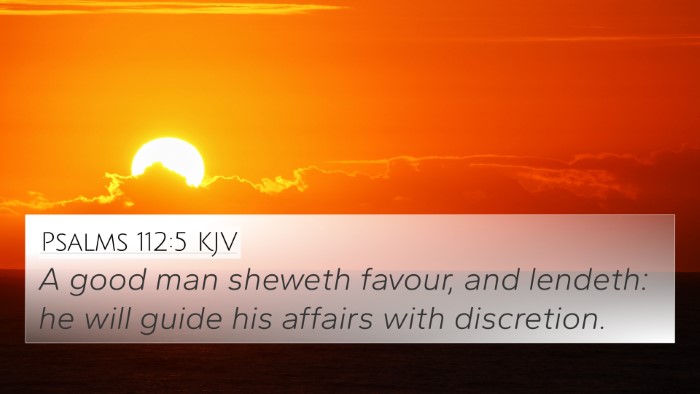Understanding Exodus 2:2
Exodus 2:2 states: "And she conceived, and bare a son; and she saw him that he was a goodly child, and she hid him three months." This verse marks a significant moment in the life of Moses and offers deep insights when analyzed through various biblical commentaries.
Summary of Commentaries
The following insights from respected public domain commentaries provide a comprehensive understanding of this verse:
- Matthew Henry: Henry emphasizes the divine providence in Moses' birth. The 'goodly child' indicates God's preparation for Moses' future role as a deliverer. The act of hiding him reflects both the peril of the situation due to Pharaoh's decree and the faith of his mother.
- Albert Barnes: Barnes focuses on the significance of Moses being hidden for three months. He notes that this was an act of courage and defiance against tyranny. The verse may symbolize the early signs of Moses' special purpose, suggesting that he was chosen by God from birth.
- Adam Clarke: Clarke provides insight into the character of Moses' mother, Jochebed. He notes the maternal instinct and faith that prompted her to hide Moses. Clarke also analyzes the implications of the phrase 'goodly child' as a reflection of God's favor.
Thematic Analysis
This verse can be connected to various themes throughout the Bible. It highlights:
- The theme of divine protection and providence, which can be seen in Psalms 91:11, where God’s angels guard His people.
- The role of mothers and parental sacrifices, paralleling 2 Timothy 1:5, which mentions the faith of Timothy’s mother and grandmother.
- God's selection of leaders, foreshadowed in Jeremiah 1:5, where God calls Jeremiah while he is still in the womb.
- The struggle against oppression, echoed in Matthew 2:13 during the story of Jesus’ escape from Herod.
Cross-References for Exodus 2:2
Several key biblical texts relate to the themes and meanings in Exodus 2:2:
- Genesis 3:15: The prophecy of enmity between the serpent and the woman, indicating God's plan of redemption and preparation for deliverance.
- Exodus 1:22: The context of Pharaoh's decree to kill Hebrew boys, revealing the perilous situation surrounding Moses' birth.
- Hebrews 11:23: This New Testament reference indicates the faith of Moses' parents in hiding him, affirming the significance of their actions.
- Isaiah 49:1: A prophetic scripture about God's calling, reflecting the divine purpose for Moses.
- Acts 7:20-22: Stephen references Moses' upbringing and God's providence in preparing him as a leader.
- Matthew 1:21: The birth narrative of Jesus, showing a parallel in divine selection and purpose.
- Psalm 127:3: The blessing of heritage, resonating with the theme of divine favor towards children's future.
- Luke 1:80: The growth of John the Baptist, also a significant figure ordained for a divine purpose from infancy.
Connecting the Dots
In studying Exodus 2:2, we see the inter-Biblical dialogue between the themes of providence, faith, and destiny. By exploring these connections:
- One can observe how God prepares individuals for leadership roles even before their birth.
- We see a pattern of parental faith throughout Scripture, reinforcing the importance of nurturing future generations in the faith.
- By comparative study, we find a richer understanding of God’s overarching plans and promises that run throughout both the Old and New Testaments.
Using Biblical Cross-References
To deepen your understanding of biblical texts, using tools for Bible cross-referencing can be immensely helpful. They can assist in:
- Identifying connections between Old and New Testament themes.
- Linking similar stories which reveal a consistent narrative of God's intention.
- Broadening study methods through comprehensive Bible concordance systems.
- Engaging in thematic analysis that highlights how different scriptures resonate with one another.
Conclusion
Exodus 2:2 not only narrates a pivotal moment in Moses' life but also offers a conduit to explore broader themes within Scripture. Through cross-referencing and thematic study, one can grasp the richer tapestry of biblical messages, emphasizing God's providence, the significance of faith, and the heritage of divine calling.
